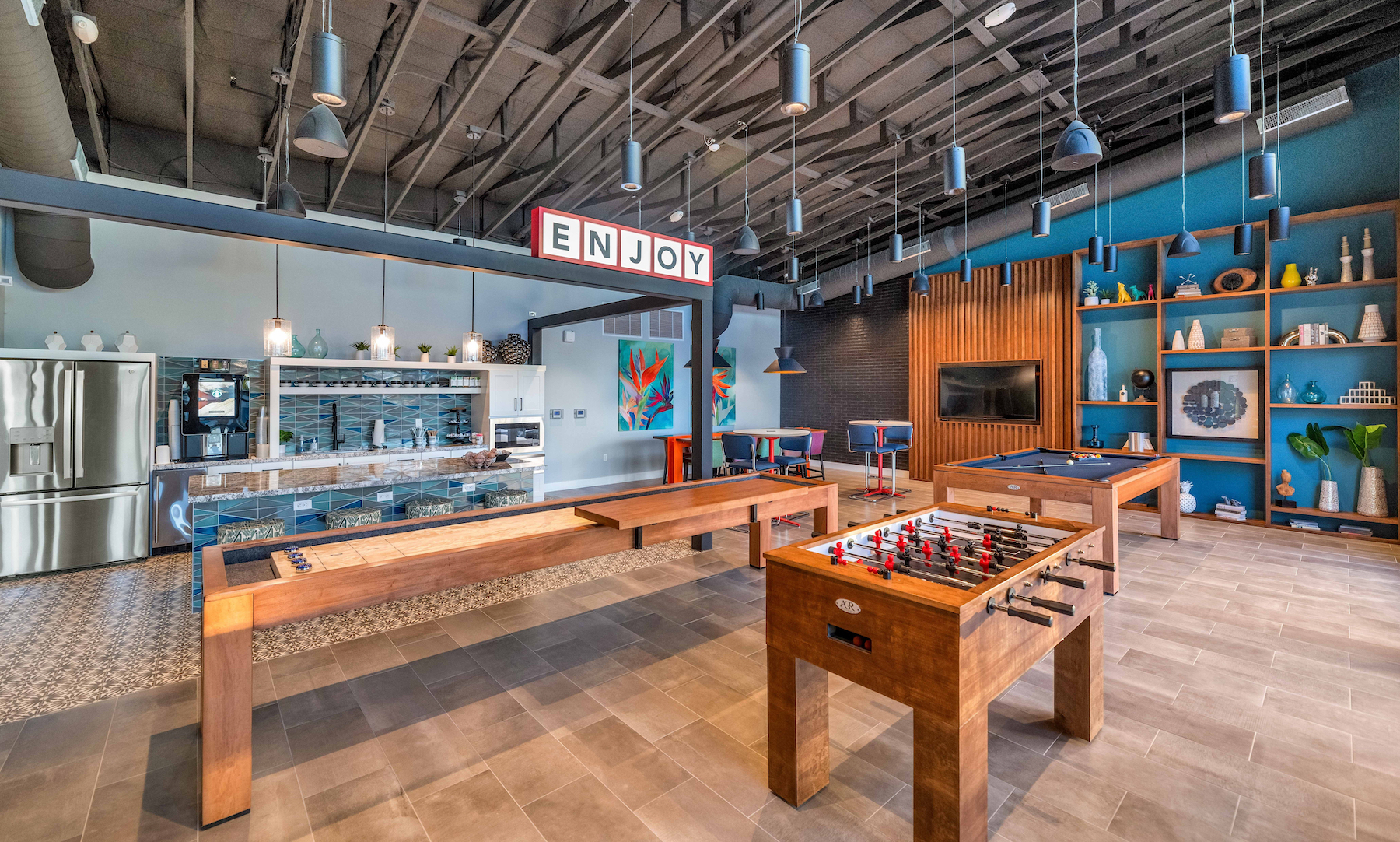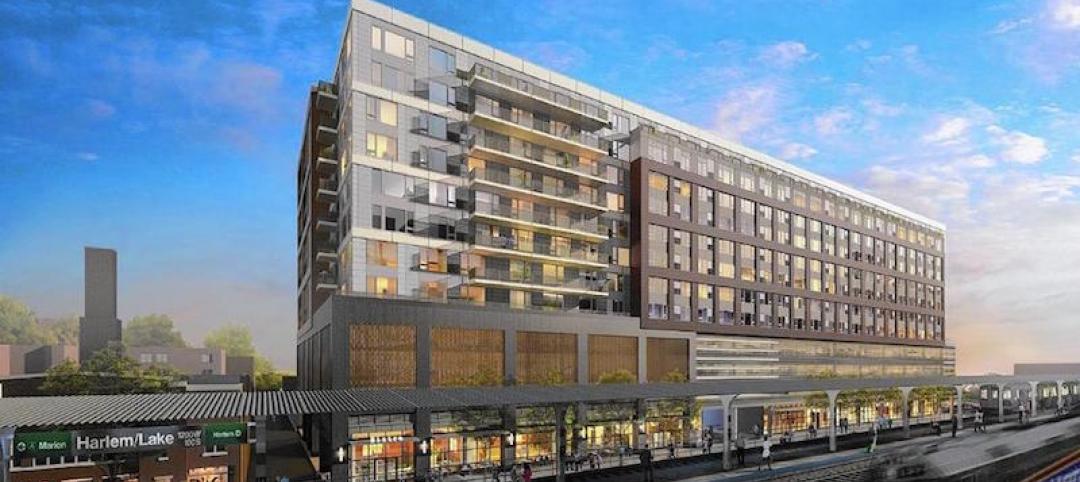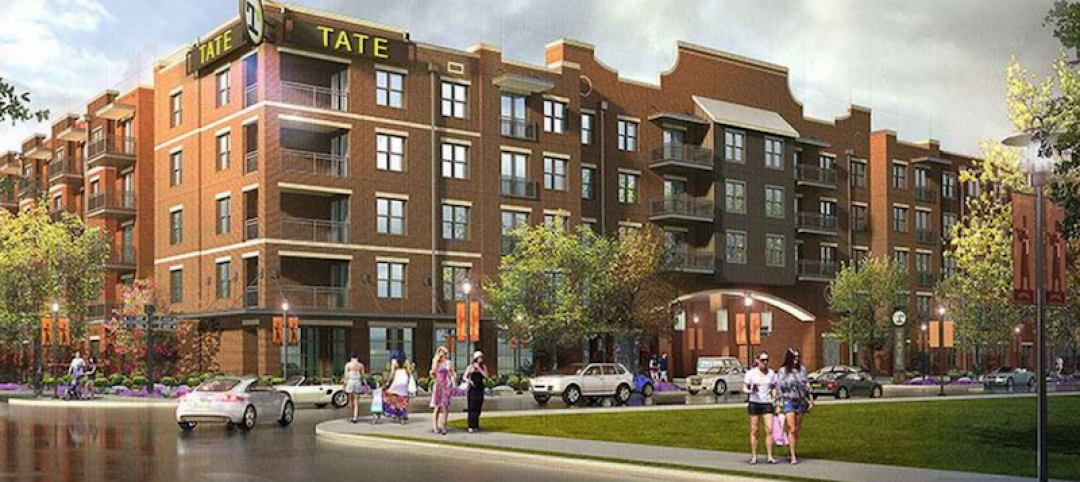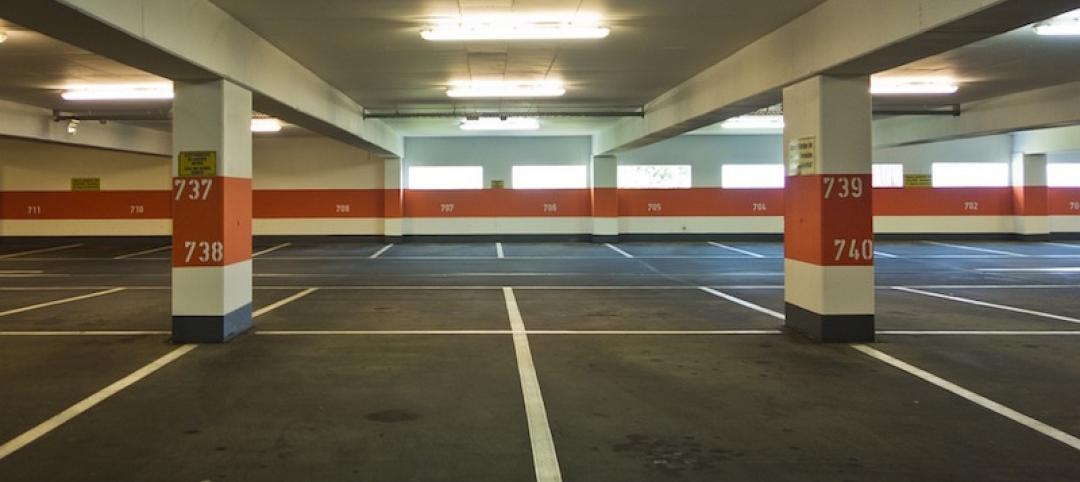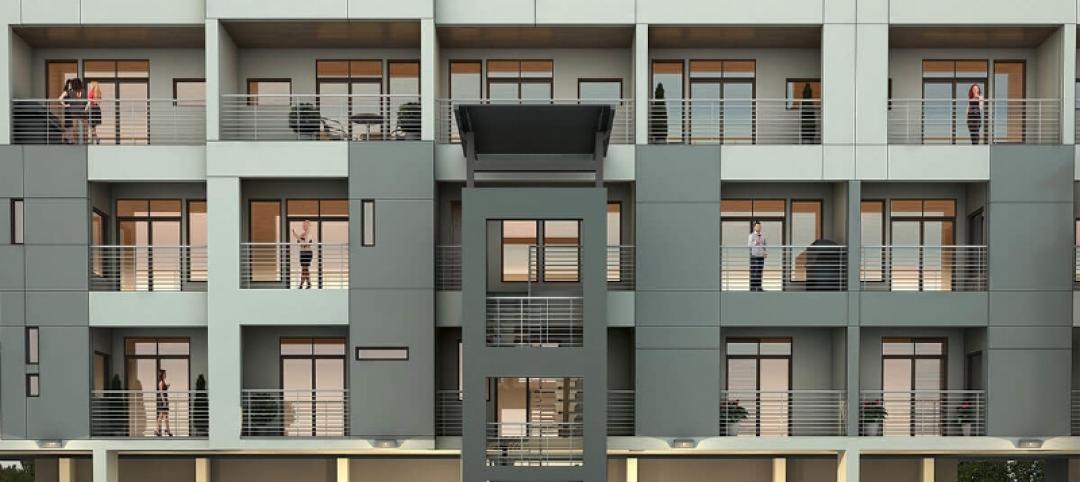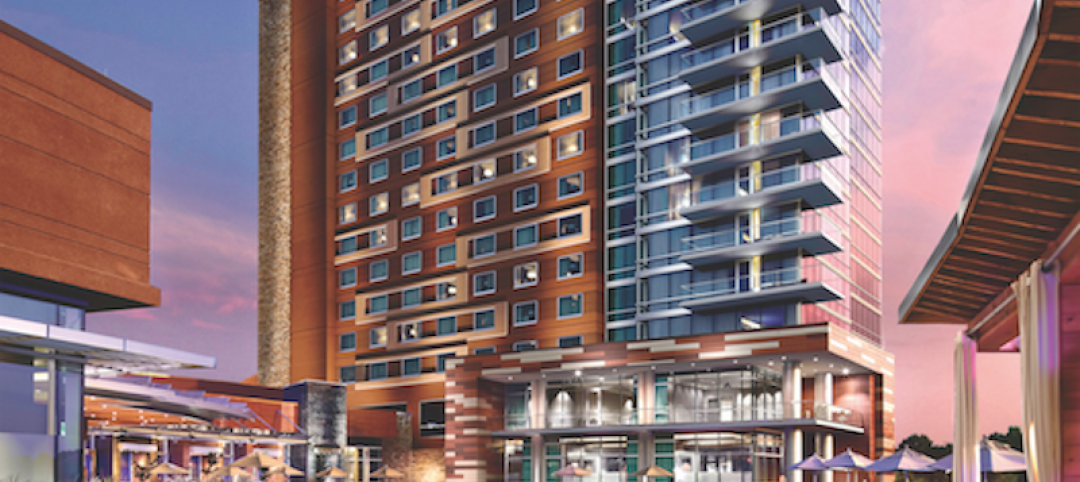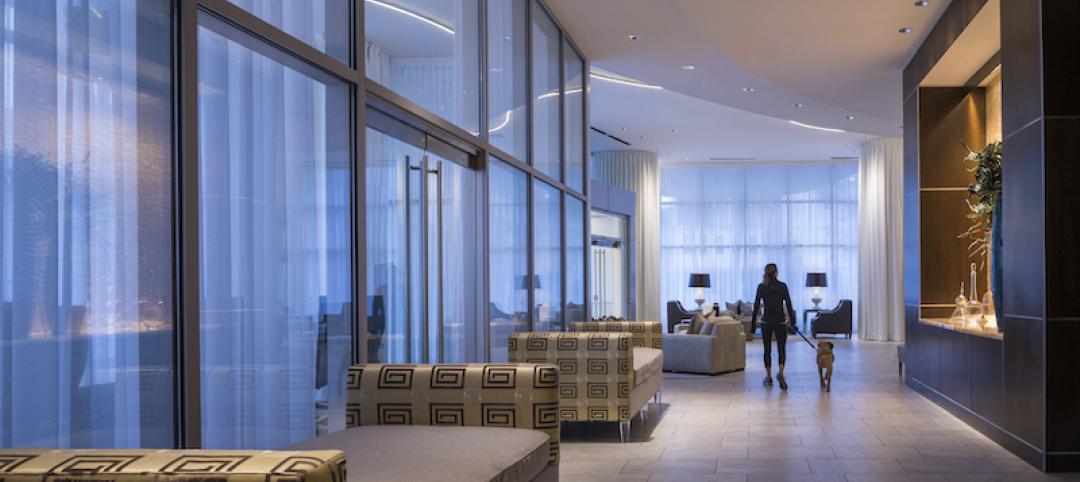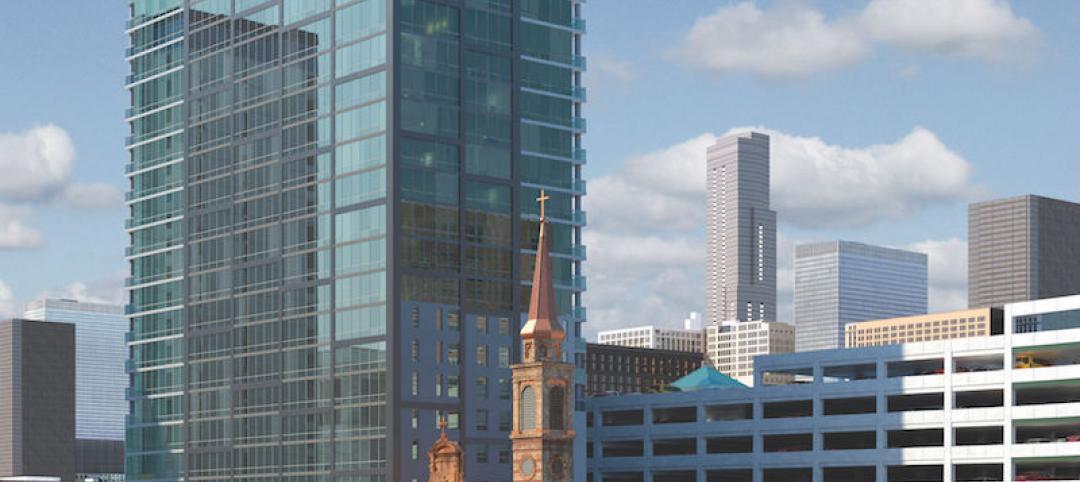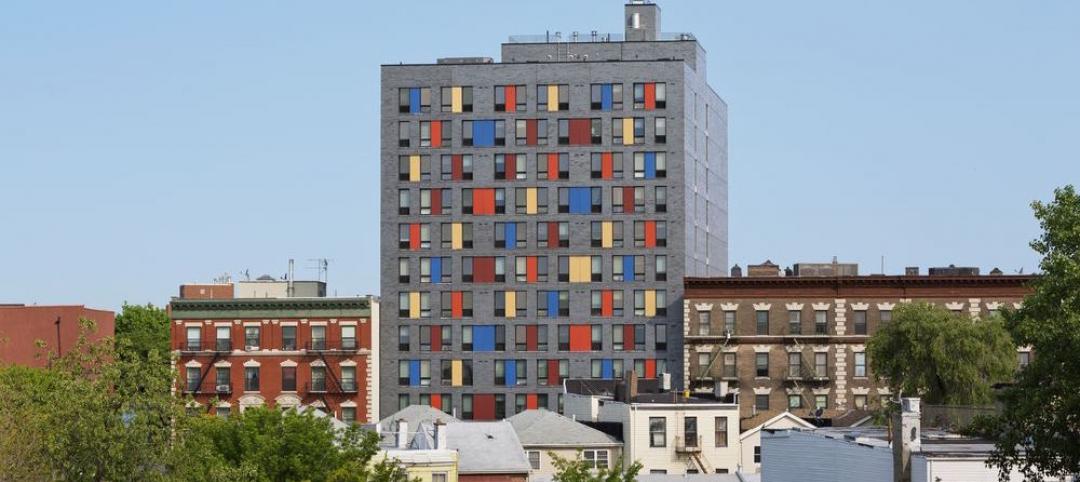One of the hardest decisions multifamily developers and their design teams have to make is what mix of amenities they’re going to put into each project. A lot of squiggly factors go into that decision: the type of community (market-rate vs. affordable, for-sale, senior living, student housing, etc.), the geographic market, local recreation preferences (tennis court or putting green? bocce or billiards?), climate/weather conditions, physical parameters (availability and cost of land), and of course the budget. The permutations are mind-boggling.
Along with location and pricing, however, getting the amenity mix right is crucial to your marketing program and the ultimate success of your multifamily project. The worst thing that can happen is to install an amenity, especially an expensive one or one that takes up a lot of valuable space, and not have occupiers use it. What a waste!
It’s not only an out-of-pocket cost, it’s a lost opportunity: What other amenity would have been more popular with your renters or condominium buyers? And how much will it cost to fix the problem—if it can be fixed at all?
All this has been further complicated by the COVID-19 pandemic. Property managers across the country had to close fitness centers, pool decks, children’s playgrounds, game rooms, even business centers and lounges. Survey respondents said tenants were particularly vexed about losing the convenience of their workout spaces and swim spas, which also saved them the cost of buying an outside club membership.
342 developers, builders, and architects pinpoint the top multifamily amenities
To help you navigate this crisis, BD+C's sister publication, Multifamily Design+Construction, conducted a survey in February/March 2021 of 342 multifamily developers, builders, and architects about how amenities were affected by the COVID pandemic. The resulting 2021 Multifamily Amenities Report builds on surveys conducted in 2017 and 2019 and measures the responses of multifamily sector professionals to their use of 131 amenities—including a new one about “smart connectivity systems.”
One thing about respondents’ answers to the COVID question surprised me: more than half said they had made no changes to their amenities. For some, the work was so far along, they had to live with what they had. But others made it clear that they were going to weather the storm, no matter what. Changing their amenities mix was not on the agenda.
The other half did make changes—removing some amenities, pushing activities outdoors as much as possible. In some cases, the amenities could be modified fairly easily; for example, by putting plexiglass “shields” between pieces of workout equipment in the fitness center. These may have been temporary fixes in response to a crisis, but growing concerns about designing for occupiers’ health and wellness may turn them into permanent features of amenities packages in the future.
Thanks to our 2021 Multifamily Amenities Study sponsor: EXACOR™ | Huber Engineered Woods
The 2021 Multifamily Amenities Report ranks 131 amenities and features across 10 building areas:
• Top ‘smart connectivity’ systems
• Top 10 indoor amenities
• Top 10 outdoor amenities
• Top 10 recreation amenities
• Top 10 convenience services
• Top 10 quality of life amenities
• Top 10 business and technology services
• Top 10 security services
• Top children's services
• Top services for pets
• BONUS: COVID-19 impact on amenities
• BONUS: List of ‘first-time amenities’ for developers
For the full 16-page PDF report, visit: www.BDCnetwork.com/Amenities2021.
Related Stories
Multifamily Housing | Aug 17, 2016
A new research platform launches for a data-deprived multifamily sector
The list of leading developers, owners, and property managers that are funding the NMHC Research Foundation speaks to the information gap it hopes to fill.
Multifamily Housing | Aug 12, 2016
Apartment completions in largest metros on pace to increase by 50% in 2016
Texas is leading this multifamily construction boom, according to latest RENTCafé estimates.
Regulations | Aug 9, 2016
New trend eases parking requirements for U.S. cities
Transit-oriented development and affordable housing are spurring the movement.
Multifamily Housing | Aug 9, 2016
Surge Homes brings the concept of micro condos to Houston
The sub-500-sf homes will be the first of their kind to be offered in the metro known as Space City
| Aug 4, 2016
MULTIFAMILY BUILDING GIANTS: Rental complexes focus on affordability, accessibility, and specialty amenities
To address the affordability problem and attract tenants, owners and developers are experimenting with smaller and smaller units, amenity-rich environments, and “co-living” concepts.
| Aug 4, 2016
Top 50 Multifamily Engineering Firms
Jacobs, AECOM, and Arup top Building Design+Construction’s annual ranking of the nation’s largest multifamily building sector engineering and E/A firms, as reported in the 2016 Giants 300 Report.
| Aug 4, 2016
Top 80 Multifamily Construction Firms
Lendlease, Suffolk Construction Co., and Clark Group top Building Design+Construction’s annual ranking of the nation’s largest multifamily building sector construction and construction management firms, as reported in the 2016 Giants 300 Report.
| Aug 4, 2016
Top 110 Multifamily Architecture Firms
Perkins Eastman, CallisonRTKL, and Solomon Cordwell Buenz top Building Design+Construction’s annual ranking of the nation’s largest multifamily building sector architecture and A/E firms, as reported in the 2016 Giants 300 Report.
Multifamily Housing | Jul 20, 2016
Colorful Boston Road building offers affordable housing in the Bronx
Designed by NYC’s Alexander Gorlin Architects, the 12-story building will have 154 studio apartments for low-income working adults.
Multifamily Housing | Jul 18, 2016
Four residential projects named winners of the 2016 AIA/HUD Secretary Awards
Affordable housing, specialized housing, and accessible housing projects were honored.


